Media Watch Dog: Leigh Sales’ memo to ABC staff channels Tucker Carlson in his Fox News days

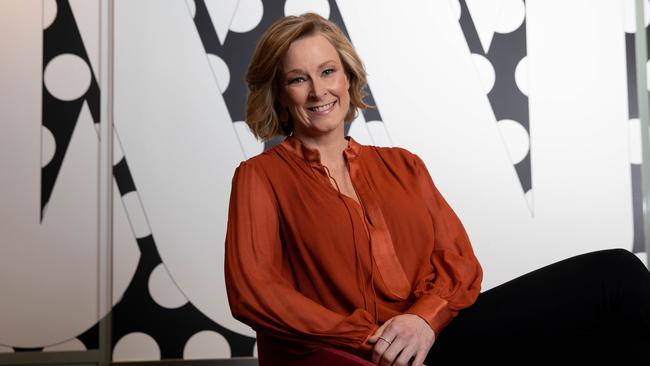
The reference is to an email from Mark Maley (the ABC’s editorial policy manager) to staff sent on 24 August. The ABC, despite being a member of the Right to Know Coalition, has – once again – refused to comment on the issue. Beyond saying that “the email to staff is self-explanatory and we have nothing further to add”. Another non-communicative ABC communication, to be sure.
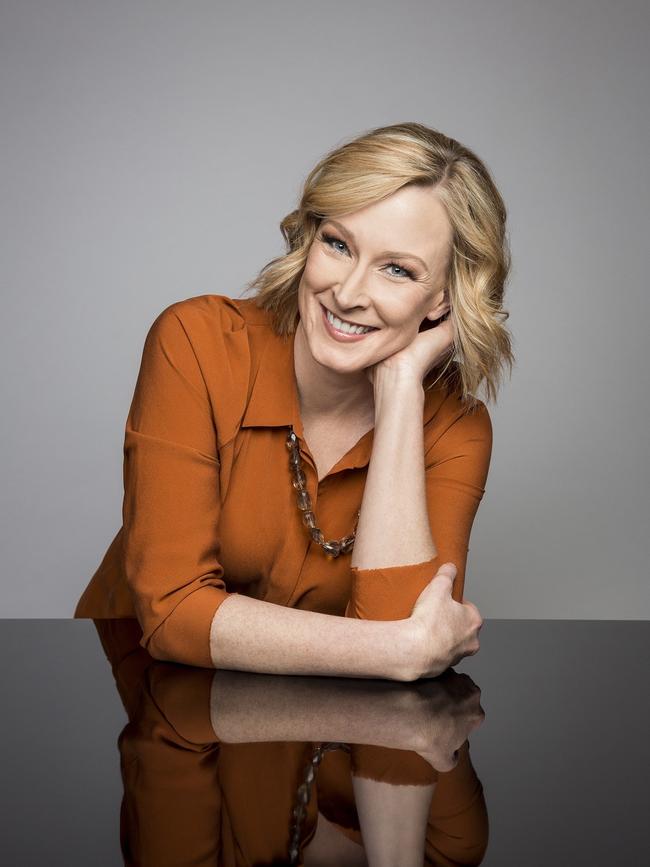
There is a debate as to whether the Uluru Statement consists of one page or whether the pages attached to the 400-word statement are part of a bigger document. Mr Maley and Ms Sales hold the former view. ABC TV Media Watch presenter Paul Barry appears to disagree with the Maley/Sales strict interpretation – regarding the argument as contested.
Media Watch Dog is interested in what the current controversy says about ABC journalism. According to The Australian’s report, Leigh Sales’ advice to ABC journalists is as follows. First, they should say something like this:
Ms X, respectfully, I’ll correct your claim that the Uluru statement is a 26-page document. It is a one-page document, the other 25 pages were minutes collected during a consultation phase that do not form part of the document.
Then, according to the Elsworth report, Ms Sales told ABC journalists that they should “move on … with your next question”. In other words, Leigh Sales is advising ABC journalists that they should close down the discussion by having the last word on the matter and directing the interviewee to another issue. This sounds a bit like the way Tucker Carlson used to handle disagreeable interviewees when he was on Fox News in the United States.
It is reasonable for ABC staff to state their personal views when on an opinion program. But it is not the role of ABC presenters to run a line and prevent people they are interviewing from presenting a different opinion. This is a form of censorship.
CAN YOU BEAR IT?
Believe it or not – Fran Kelly throws the switch to ambiguity about the voice referendum
Isn’t it great to learn that Media Watch Dog fave Fran (“I’m an activist”) Kelly – who appears to be on light duties at the ABC – has a brand new podcast? It’s just been announced that the taxpayer funded public broadcaster has launched The Voice Referendum Explained presented by Fran Kelly and Carly Williams.
Apparently, The Voice Referendum Explained will supplement The Party Room podcast which Fran Kelly co-hosts with Patricia (“Please call me PK”) Karvelas. According to the ABC, this podcast “gives you the political analysis that matters”. As distinct from, apparently, the political analysis that doesn’t matter.
And so it came to pass that on 23 August, PK interviewed Comrade Kelly and Carly Williams about The Referendum Explained on the ABC Radio National Breakfast program.
Let’s go to the start of the interview to get an idea about what the comradely duo have to say about their new podcast aimed at telling us lesser mortals all we need to know about the forthcoming Indigenous Voice to parliament and the executive:
Patricia Karvelas: The upcoming vote on the Voice to parliament raises a lot of issues. It can be hard to keep up with the debate or even know where to start to find information, truthful information, when there is so much misinformation around. Today the ABC is launching a new podcast called The Voice Referendum Explained, where our own Fran Kelly, former host of this show, and of course, also the host of The Party Room podcast, and Quandamooka woman and ABC journalist Carly Williams will give you the details you need to help make a decision at the ballot box. And they both join me in the studio, Fran and Carly, welcome.
Fran Kelly: Hi, PK.
Carly Williams: Hey, PK.
So, there you have it. Comrades Kelly and Williams will tell us all that we need to know about the referendum on the proposed Voice. This is how the interview concluded:
Fran Kelly: And you know, the biggest hurdle, the biggest bar, is perhaps to get the four states. … The No campaign’s made no secret of the fact that they are targeting some of the smallest states, particularly with their message, because if you lose four states you don’t get a referendum up.
Patricia Karvelas: What an interesting project, I will be listening, thank you very much, ladies.
Hang on a minute, if the Yes campaign loses three states it will not get the referendum up. The Yes vote will be lost if it does not get a majority of votes in four States – along with an overall majority. In other words, The Yes case will lose if it only gets three states or less up. It can only afford to lose two states. This ambiguity was not corrected by Comrade Williams or by PK.
So, there you have it. The ABC is setting out to explain the referendum by means of a podcast. However, on the day of its launch, the Kelly/Williams duo gave an ambiguous explanation to RN Breakfast listeners (if listeners there were) about how the Yes vote can succeed. Can You Bear It?
RMIT ABC fact-check supremo Russell Skelton once depicted conservatives as pesky possums
While on the topic of the forthcoming referendum, has anyone been following the discussion over the role of the ABC in fact-checking the debate leading up to polling day? ABC head of communications Nick Leys – a well-funded part of the taxpayer funded public broadcaster which excels in not communicating – has been busy of late in stating that there is a difference between the RMIT University FactLab (headed by MWD fave and former ABC staffer Russell Skelton) and the RMIT ABC Fact Check (also headed by former ABC staffer Russell Skelton).
The distinction without a difference was explained by Sophie Elsworth in The Australian for 22 August and on 25 August. Your man Leys told Ms Elsworth that a fact-check with respect to a column in The Australian by Peta Credlin “was not conducted by RMIT ABC Fact Check but by RMIT FactLab” – both of which are presided over by Comrade Skelton. Also, as Sophie Elsworth has pointed out, the ABC’s RMIT FactLab page originally stated that it works hand-in-hand with RMIT Fact Check, a partnership between RMIT University and the ABC which focuses on fact-checking claims with public figures”.
Work that out if you can. If you don’t have time or can’t be bothered – you may be interested in the Thought of Russell Skelton, who worked for the left-of-centre Age before moving to the conservative free zone that is the ABC and then on to RMIT University in Melbourne.
Writing in The Age on 25 April 2008 (at a time when Media Watch Dog referred to the Melbourne newspaper as “the Guardian on the Yarra”) – this was before the real Guardian arrived in Australia – Russell Skelton fanged Australian conservatives.
This is how the Skelton opinion piece commenced – it was written shortly after the Australia 2020 Summit which was set up by Prime Minister Kevin Rudd soon after Labor won the 2007 election:
One way of getting rid of pesky possums in the roof is to wait until they go out at night and then stuff up the holes. The clamour from the returning posse of furry creatures can be deafening at first, but after a while they calm down and move on. The 2020 summit has been just such an exercise. For one weekend a national conversation took place about the future of the country without a bunch of once-influential marsupials shouting down discussion of significant policy issues.
These are the possums of the conservative commentariat. They are an invasive, boisterous species. They make their nests within the pages of Quadrant magazine (an obscure journal with a circulation that is a fraction of the Kmart catalogue), and invade the columns of news limited papers and the hollowed-out walls of right-wing think tanks.
How clever was that? Comrade Skelton, in full leftist sneering mode, classified “the conservative commentariat” – not one of which he was brave enough to name – as “pesky possums”.
And now, without having renounced his contempt for conservatives, Comrade Skelton presents himself as an objective fact-checker making judgments about conservatives and (so-called) progressives alike. Can You Bear It?
Nine’s CBD column tops for trivia
While on the topic of Age journalists – didn’t Kishor Napier-Raman and Liam Mannix excel themselves in their “CBD” column on 23 August? As avid MWD readers know, “CBD” also appears in the Sydney Morning Herald.
The lead “CBD” story that very day was a real scoop. Namely, that the NSW Liberal Party’s Willoughby state electorate conference is holding a movie night at the Hayden Orpheum in Cremorne. The film in question is Sound of Freedom – which “CBD” describes as “a brawny Christian action thriller about child sex trafficking”.
Apparently, Comrade Mannix and the hyphenated name guy reckon that the men and women business types in the Central Business District of Sydney and Melbourne can talk about nothing else than a forthcoming Liberal Party cinematic bash in Cremorne. Really.
The gossip-loving duo went on to report they had been told that “Monday night’s star-studded 70th anniversary bash for the law firm Arnold Bloch Leibler was a hotbed of hot goss”. CBD reckoned that “perhaps the hottest rumour in the room” was that Linda Dessau (the former governor of Victoria) “is now strongly in the running to be Australia’s next governor-general”. There were some 900 guests at the function. Ellie’s (male) co-owner, who was there, heard no such gossip. But there you go.
Comrades Napier-Raman and Mannix continued:
But the real action, as ever, was at the back of the room, where Antony Catalano was facing his toughest negotiation yet. The master deal-maker and property entrepreneur, who sold Metro Media Publishing Holdings to Fairfax Media for many tens of millions, is now trying to determine how much pocket money his kids should get. His teenage son is pushing for $200 a week, arguing that he has to spend $10 a day on his lunch at school.
Catalano was testing the market among fellow guests about the fair going rate. It’s a decision with big financial implications for the Cat: the father-of-nine risks setting an expensive precedent for future pocket-money negotiations.
Which raises the question. Does anyone – in or outside the Melbourne or Sydney CBD – give a toss how much pocket money Antony (“The Cat”) Catalano hands out to his offspring in pocket money? Which raises an additional question. To wit, Can You Bear It?
[No. Not really – now that you ask. If CBD reckons that the real interest at the ABL Bash turned on pocket money paid to the Cat’s teenage kittens, then the CBD duo wasn’t there. For its part, MWD maintains that the real action took place around the kosher wine. MWD Editor.]
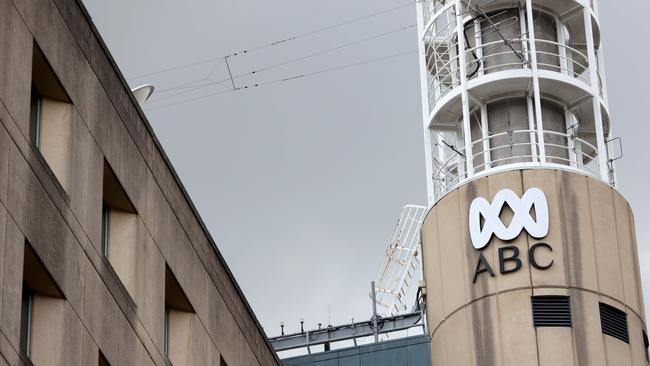
EDITORIAL
The ABC preaches – but not practises – transparency
Media Watch Dog has maintained consistently that the ABC is a staff collective – or soviet – and effectively run by employees with some program input from management.
The Commonwealth government appoints the ABC chair (currently Ita Buttrose who will step down when her five-year term ends in March 2024) and all members of the ABC board. With two exceptions. The ABC managing director – who is on the board – is appointed by the board. And the ABC staff representative on the board (currently Laura Tingle) is elected by ABC staff.
The ABC board does not run the taxpayer funded public broadcaster on a day-to-day basis. Nor can it. Nor should it. The board’s role is one of oversight with respect to financial governance and ensuring that the ABC meets its obligations under its charter and the ABC Act. Considered criticism of the board over the years has turned on its inability to enforce the provisions of the charter and, most importantly, the ABC Act which requires that the public broadcaster be fair and balanced.
In view of this, the ABC’s failure to advise that it received approval from the Commonwealth government in April to reappoint the ABC managing director and editor-in-chief to a five-year second term is of no particular moment. In so far as its management is concerned.
What is of note is the ABC’s secrecy in this regard. The ABC belongs to the Right to Know Coalition. Moreover, ABC journalists invariably demand that individuals and organisations exhibit transparency.
The problem is that the ABC preaches – but does not practise – transparency. In this instance, the ABC decided to renew Mr Anderson’s employment for a second term – but hid its decision for some four months.
New segment – look back in pleasure
Media Watch Dog readers are the type of guys and sheilas who would be aware of John Osborne’s 1956 play Look Back in Anger. On reflection, it is not clear how angry the play’s hero Jimmy Porter was – especially when compared with contemporary types. In any event, this segment is devoted to looking back in happiness on past times.
Remembering Norm McDonald – one of the great Indigenous Aussie Rules players
On ABC News Breakfast on 1 August, sports journalist Tony Armstrong reflected briefly on the retirement of Australian Football League star player Lance (Buddy) Franklin. Franklin – one of the finest Australian Rules footballers of his generation – commenced his career with the Hawthorn Hawks and moved to the Sydney Swans. Let’s go to the transcript:
Tony Armstrong: Legendary Sydney Hawthorn key forward Lance Franklin has retired after injuring his calf in Saturday night’s win over Essendon … He won two premierships for the Hawks in 2009 and 2013 and definitely belongs in the conversation with Graham Polly Farmer [Geelong] and former Swans’ teammate Adam Goodes as the game’s greatest Indigenous player.
Nothing wrong with Tony Armstrong’s analysis. But what about Norm McDonald (1925-2002)? McDonald was a star Essendon player in the late 1940s and early 1950s. A prominent foot runner – he won the Bendigo Gift and finished second in the Stawell Gift – he was perhaps the first of the running halfbacks in the AFL (then called the Victorian Football League – VFL).
The great players of the game are those who performed well in key matches. McDonald missed Essendon’s finals campaign in 1946 due to a leg injury.
The Courage Book of VFL Finals 1897-1972 has Norm McDonald among Essendon’s best players in the 1947 Preliminary Final, the 1948 Second Semi-Final, Grand Final and Grand Final replay, the 1949 Preliminary Final and Grand Final, the 1950 Second Semi Final and Grand Final (where he was judged Best on Ground), the 1951 First Semi Final, Preliminary Final and Grand Final and the 1953 First Semi Final. Essendon won premierships in 1949 and 1950.
In recent decades, fast-running halfbacks have become a feature of Australian Rules football. It’s fair to say that Geelong ruckman Graham “Polly” Farmer (1935-2019) perfected the art of fast handball in the game in the early 1960s – and that Norm McDonald was perhaps the first of the star running halfbacks a decade earlier.
For his part, Ellie’s (male) co-owner looks back in pleasure on the couple of occasions he saw Norm McDonald play for Essendon in the early 1950s.
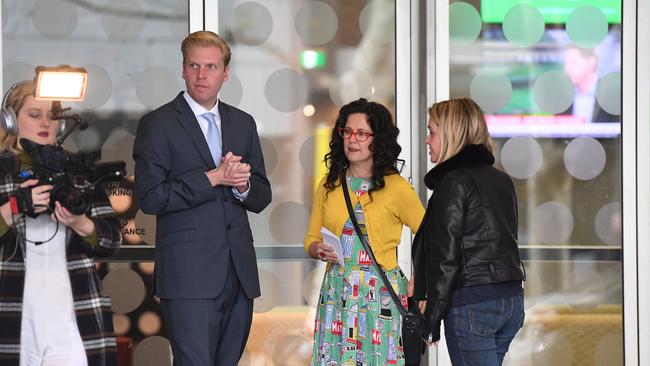
Vale Mark Humphries (on 7:30)
Avid readers will be dismayed to learn that self-described satirist Mark Humphries is leaving ABC TV’s 7.30. Humphries, who produced short, allegedly comedic sketches for the program with the help of his alleged co-writer Evan Williams, announced that his 24 August effort would be his last. So far, no reason has been given by Humphries or 7:30 for the cancellation of the sketches. Presenter Sarah Ferguson offered up some praise for Humphries at the end of the program, so the split does not appear to be acrimonious.
The final sketch was titled “The real estate agent for the politicians” and was based around the large (compared to the average Australian) number of investment properties owned by Australia’s federal politicians.
Unusually for a Humphries sketch, it took aim at politicians of all stripes, Labor, Coalition, Greens and even Teal. Though, of course, it took aim at them all from a left-wing, anti-landlord point of view. That’s political balance, ABC-style, assuming a position to the left of everyone in parliament.
As usual the sketch stars your man Humphries as an insufferable, arrogant character – MWD has never been able to determine if this was an intentional choice or just a natural result of Humphries’ acting style. Alas, this mystery may never be solved. The sketch also featured a brief appearance by frequent Humphries-collaborator Charles Firth. Firth, perhaps the least remembered of the Chaser Boys (average age 48 1/2), is always willing to rock up to ABC Ultimo, if only to relive the glory days.
Comrade Humphries joined 7:30 in October 2018, not long after Scott Morrison replaced Malcolm Turnbull as Prime Minister, and up until the 2022 federal election his sketches mostly involved bashing members of the Morrison government. Occasionally Humphries would break from this to focus on the NSW Coalition government or non-Coalition right-wing political figures like Clive Palmer or Mark Latham. Only on the rarest of occasions would Labor or the Greens come in for some light mockery.
Following the defeat of the Morrison government in May of 2022, Humphries and Williams never quite found their footing. Seemingly reluctant to satirise federal Labor, they instead veered away from politics. This generally devolved into sketches mocking whichever company was in the news that week for some scandal, thus allowing 7:30s crack satirical team to reuse the sketch formats (fake ads, interview with the-man-behind-the-thing-in-the-news) they had honed over the years of repetitive Morrison-bashing.
On 30 March 2023, Humphries and Williams seemingly got themselves into trouble with a sketch satirising gambling ads. Although the sketch aired that night it was not posted onto any social media pages and has been edited out of the iView version of 7:30. As far as MWD is aware, nobody involved has ever offered any explanation for the sketch’s disappearance.
There is no word yet on Humphries next move after departing 7:30. However, comedians with Humphries’ politics and talent generally have no problem finding more taxpayer-funded work at either the ABC or SBS. MWD’s (hugely popular) A Mark Humphries Moment segment may not be on hiatus for long.
“Sponsored by” the sage of Templestowe, Stephen Mayne
There has been an enormous demand by avid Media Watch Dog readers for a return of this segment – which had gone on what journalists like to call a WEB (aka Well Earned Break) in recent years. It would seem that this desire has been motivated by Comrade Mayne’s association of Ellie’s (male) co-owner with media pedantry. So here we go – in response to the wishes of MWD readers and in order to fulfil the prophecy of the Prophet Mayne, Hendo will continue to correct factual errors.
Gough Whitlam did not deliver the Boyer lectures
On Radio National Breakfast on 18 August, presenter Patricia Karvelas interviewed David Mitchell. The occasion was news about the death of broadcaster Sir Michael Parkinson (1935-2023). Your man Mitchell was the producer of Michael Parkinson’s Australian TV shows for the ABC and Channel 10. During the course of the interview, PK asked this question:
Patricia Karvelas: How did he prepare for an interview?
David Mitchell: Well, he already – sort of, had a lot by osmosis – had a lot of knowledge about the people he was going to interview. I remember, I’d worked in daytime television quite a bit, and used to have to do research for the various hosts. And most of them found out on the day who was coming on and winged the interview. But with Parky, we’d say: “Oh, we’ve got Gough Whitlam on next week”. And he’d say: “Oh, yes, I just read his Boyer lectures.” I mean, he was already prepared just by his very interest in the subject.
That’s a fair assessment of Michael Parkinson’s interviewing skills. However, it is Pedantry Corner’s melancholy duty to record that Gough Whitlam never delivered the Boyer Lectures. In fact, no incumbent politician has ever delivered the Boyer Lectures – named after the late Sir Richard Boyer, a one-time ABC chair – since they commenced in 1959. Sure, Bob Hawke gave the lectures in 1979 – but he was the ACTU secretary at the time.
Media Watch Dog – inspired by Stephen Mayne – thought all avid readers would like to know this (except for those who know already). There will be more such segments in future issues in order to live up to the Sage of Templestowe’s reference to Hendo as a “Chief Media Pedant”.
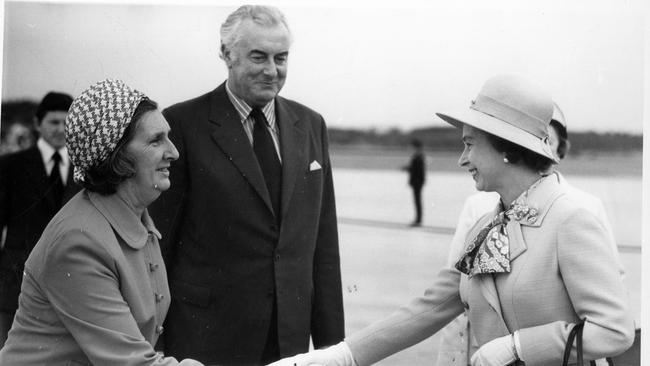
History corner
All quiet on the media front concerning PM Gough Whitlam’s one-time endorsement of the 1939 Nazi-Soviet pact
Wednesday 23 August was the 84th anniversary of the Nazi-Soviet Pact of 23 August 1939. As avid Media Watch Dog readers know only too well, this is sometimes termed the German-Soviet Pact or the Ribbentrop-Molotov Pact or the Hitler-Stalin Pact.
Following the Nazi-Soviet Pact, Germany and the Soviet Union carved up Eastern Europe between both nations. Under the agreement, the Soviet Union occupied Eastern Poland and Germany occupied Western Poland. Also, the Soviet Union, led by Josef Stalin, acquired the Baltic States – Estonia, Latvia and Lithuania.
Germany invaded Poland on 1 September 1939 – sure in the knowledge that it had a peace agreement with the Soviet Union. On 3 September 1939, British prime minister Neville Chamberlain declared war on Germany consequent upon its invasion of Poland. On 3 September 1939, Prime Minister Robert Menzies declared that Australia was also in a state of war with Germany.
Why does this matter? MWD hears avid readers cry. Well, it’s this. On 3 August 1974, Prime Minister Gough Whitlam, who was acting foreign minister at the time, announced that Australia would recognise de jure Soviet sovereignty over the Baltic States. Previously, Australia had recognised the USSR’s de facto (in fact) sovereignty with respect to the Baltic States. This meant that Australia effectively now recognised the legitimacy of the Nazi-Soviet Pact of August 1939.
Earlier this year, Michael Easson’s Whitlam’s Foreign Policy was published by Connor Court. Dr Easson, a businessman, was formerly a secretary of the Labour Council of NSW, a vice-president of the ACTU and a senior vice-president of the NSW branch of the ALP. He is an admirer of Gough Whitlam – but not an uncritical one.
Michael Easson’s Whitlam’s Foreign Policy has been well received in the media. But there has been an evident lack of attention to the segment titled “Baltic States” which appears in the chapter “Controversies”.
Easson makes the point that the Whitlam Government recognised the Soviet Union’s incorporation of the Baltic States – despite the fact that no domestic political group in Australia was campaigning for this recognition and there were no trade benefits for Australia in response to diplomatic gestures such as recognising the incorporation of the Baltic States into the USSR.
Lionel Bowen (then the Special Minister of State) accompanied Prime Minister Whitlam on a trade mission to the Soviet Union in January 1975. Easson writes that John Faulkner – the NSW Labor senator from 1988 to 2015 and an admirer of Whitlam – told the following about Bowen’s recollection of Whitlam’s visit to Moscow (it is taken from Frank Brennan’s 2017 Lionel Bowen Memorial Lecture which was published in Eureka Street on 30 August 2017). Mr Bowen was a considered and well-informed person who was not given to exaggeration. Here we go:
Along with Gough, he [Lionel Bowen] met with Alexei Kosygin and other Soviet leaders. The meeting dragged. With the aid of a translator, apparently Kosygin said “I’m delighted to have this meeting. This is the first occasion an Australian Prime Minister has visited the Kremlin, despite the fact we have fought alongside each other in two world wars. Now, let’s do something big to honour this occasion, like a major trade announcement. The Soviet Union could take a substantial amount of your wheat and your wool, and you, from Australia, could reciprocate with landing rights for Aeroflot, and take minerals and cargo ships from the Soviet Union.” Gough responded, I am told, to a speechless Kosygin and certainly a stunned Lionel Bowen: “I don’t want to talk with you about mundane things like trade. I want to know what happened to the Grand Duchess Anastasia in 1918.”
The reference was to the Grand Duchess Anastasia, the youngest daughter of Tsar Nicholas II and Tsarina Alexandra Feodorovna. Anastasia, along with other members of her family, was killed by the Bolsheviks at Yekaterinburg on 17 July 1918 – not long after the Bolsheviks came to power in Russia in November 1917.
The leaders of the Soviet Union – from Vladimir Lenin and Josef Stalin and on to Kosygin – always denied that the Tsar and his family had been murdered by the Bolsheviks. The idea that Stalin’s heirs in Moscow in 1975 were going to tell the Australian prime minister about the fate of Anastasia is just ridiculous.
Michael Easson concluded his segment on the Baltic States by describing Whitlam’s actions as “bizarre and unnecessary”. That’s correct. But what it shows is that Gough Whitlam had no understanding of the reality of communist rule in the Soviet Union until it collapsed in 1991 – to the extent that he saw no problem in giving legal approval to the deal between Hitler and Stalin in 1939.
Gough Whitlam received little criticism in the Australian media in 1974 when Australia recognised the right of the Soviet Union to acquire the Baltic States. And Whitlam’s continuing fans in the Australian media today have failed to report Michael Easson’s considered criticism of this part of the Whitlam government’s foreign policy. By the way, there was no trade agreement reached between Australia and the Soviet Union in the early 1970s or at any other time.
Australia’s de jure recognition of the Soviet Union’s incorporation of the Baltic States was overturned by the Fraser Coalition Government in December 1975, shortly after it came to office.
Correspondence
This overwhelmingly popular segment of Media Watch Dog usually works like this. Someone or other thinks it would be a you-beaut idea to write to Gerard Henderson about something or other. And Hendo, being a courteous and well-brought up kind of guy, replies. Then, hey presto, the correspondence is published in MWD – much to the delight of its avid readers.
There are occasions, however, when (the late) Jackie’s (male) co-owner decides to write a polite note to someone or other – who, in turn, believes that a reply is in order. Publication in MWD invariably follows. There are, alas, some occasions where Hendo sends a polite missive but does not receive the courtesy of a reply. Nevertheless, publication of this one-sided correspondence still takes place. For the record – and in the public interest, of course.
Gerard Henderson to Anthony Whealy KC re the McLellan royal commission and its failure to cover government schools
Former NSW Supreme Court Judge Anthony Whealy KC is currently chair of the Centre for Public Integrity – in which capacity he makes many media appearances, especially on the ABC. Mr Whealy appeared on ABC Radio National Breakfast on 1 August where discussion turned on Royal Commissions. Patricia Karvelas was the presenter on 24 August 2023. Gerard Henderson wrote to Anthony Whealy about his comments to Patricia Karvelas. His email is printed below. If Mr Whealy replies and wishes to have his correspondence published in Media Watch Dog – his wish will be met in a future issue. Now, read on, if you wish.
The Hon Anthony Whealy KC
Chair of the Centre for Public Integrity
Dear Mr Whealy
I have followed your legal and post-legal career with some interest and have noted your recent comments on the establishment of the National Anti-Corruption Commission (NACC).
I write with reference to the interview you gave to Patricia Karvelas on ABC Radio National Breakfast on 1 August 2023 – where you made the following comments with respect to royal commissions and the like:
Patricia Karvelas:..Where does it leave royal commissions? Because the other thing is when you know, there’s calls for a Royal Commission at the moment for, for the Big Four accountancy firms. Some people think a Royal Commission should be looking at that issue. Others say it should be the NACC. How does, How does that line of responsibility or accountability work on these different issues?
Anthony Whealy: … they’ve been very valuable in some respects, royal commissions. You know, we all think of the royal commission that Peter McClellan did, you know, into institutionalised sexual abuse. I mean, that was a very valuable and necessary royal commission. But they take a long while and they eat up a lot of money. And they really should only be used where it’s absolutely necessary. And often, what comes out of a royal commission is precisely what you’d expect. You don’t get any surprise answers, really. You know, the Royal Commission into banks showed that the banks were behaving badly, the Royal Commission into institutionalised sexual abuse showed that there was a lot of shocking behaviour in institutions, including the Catholic Church and other religious institutions. Everybody, I think, can predict the outcome of those …
I know that you understand the nature of the Royal Commission into Institutional Responses to Child Sexual Abuse headed by Peter McClellan KC. However, in my view, your comments RN Breakfast were ambiguous.
The Royal Commission – which ran from 2013 to 2017 – was intended to cover all institutions, not just religious ones. Moreover, Prime Minister Julia Gillard, when announcing the establishment of the Royal Commission on 12 November 2012, said emphatically that it would look beyond the Catholic Church to all institutions. This is documented in my book Cardinal Pell, The Media Pile-On & Collective Guilt (Connor Court, 2021).
The fact is that Mr McClellan focused overwhelmingly on Christian institutions – mainly Catholic and after that Anglican. The Royal Commission conducted over 50 case studies – not one of which covered existing government schools. As you may or may not be aware, in recent years the governments of Tasmania, NSW and Victoria have set up commissions of inquiry to investigate historical child sexual abuse in government schools, youth detention centres, hospitals and the like – which were ignored by Mr McLellan.
I wrote about this in my Weekend Australia column on July 29, 2023 (see attached). Neither Mr McClellan nor anyone who worked on the Royal Commission have challenged anything I wrote in my column.
The fact is that – to use your words – there was “shocking behaviour” in government institutions with respect to historical child abuse. It’s just that Peter McClellan KC and his fellow commissioners did not see it. Despite a royal commission that ran for five years, cost the taxpayer close to $350 million and employed hundreds of staff at any one time.




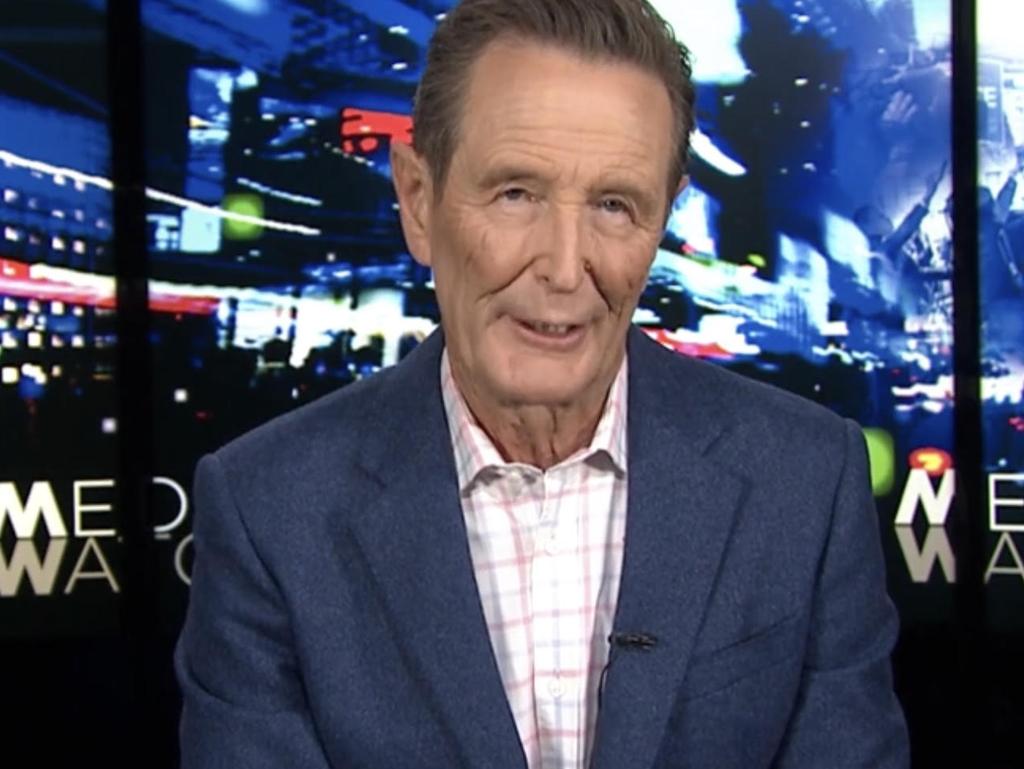


Today’s exclusive report in The Australian by Sophie Elsworth reveals that “ABC management and top journalist Leigh Sales have instructed staff at the public broadcaster that the Uluru Statement from the Heart is a ‘one-page document’ and gives them tactics to quash any argument contrary to this.”